On May 7, 2025, the powerful documentary Sudan, remember by hind meddeb hits theaters. Filmed in the heart of the sudanese revolution, the film tells the story of a people’s struggle through poetry, memory, and revolt. NOFI offers you an immersive account, at the crossroads of cinema, political history, and contemporary Black memory.
Sudan, remember: A free-Verse revolution against forgetting
Some films tell a story. Others resist erasure. Sudan, Remember, the new documentary by Hind Meddeb, belongs to the latter. It is not just a film — it is memory in motion. A projected poem against war. A cry of hope in a language that military repression could not silence.
Shot over several years during the upheavals of Sudanese history (the fall of Omar Al-Bashir in 2019, the June 3 massacre, the 2021 military coup, and the outbreak of war in April 2023), this film is above all a perspective: that of a Franco-Tunisian filmmaker who did not film about the Sudanese people, but with them. Like a guest swept up by History.
A Free-verse revolution
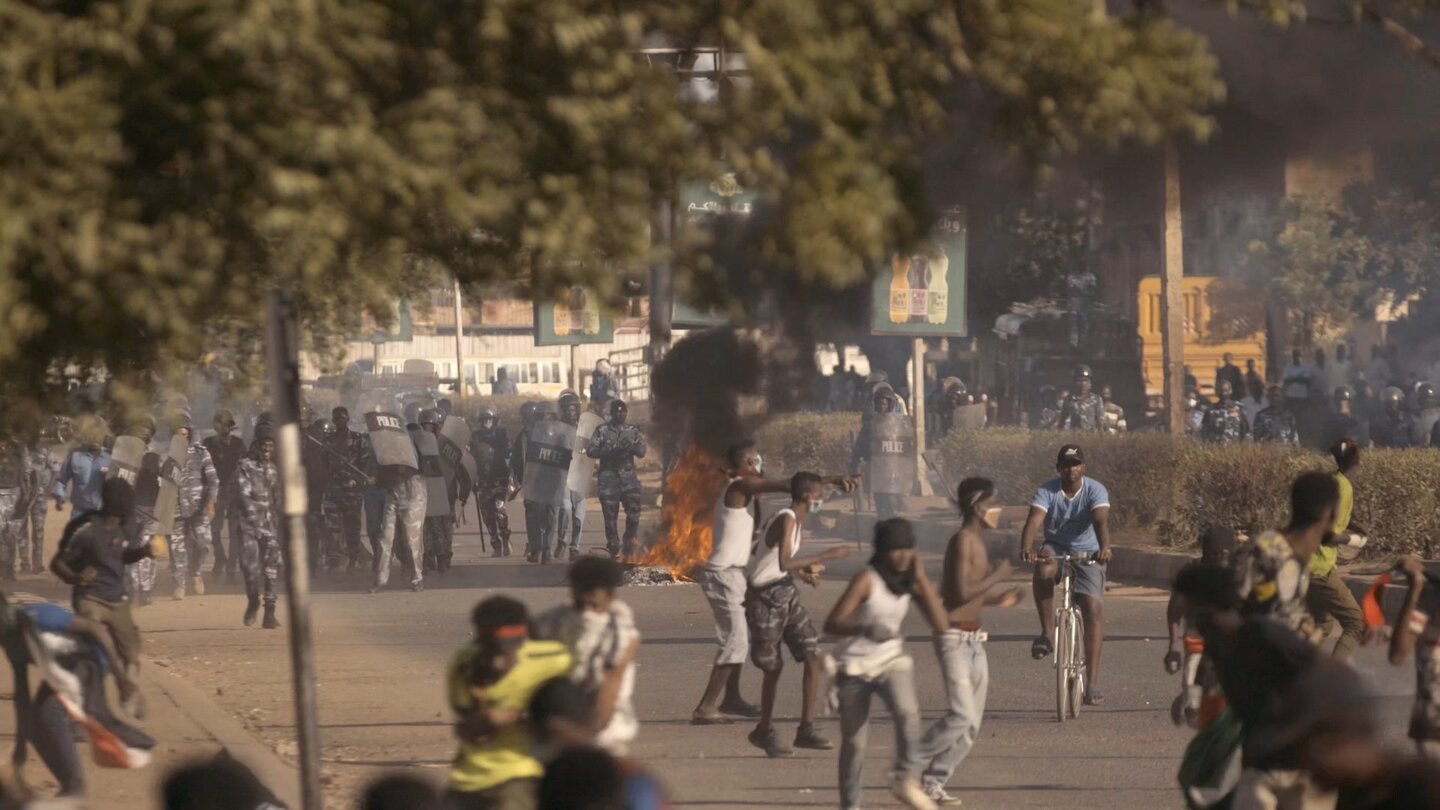
From the very first minutes, a voice calls out. That of a young man killed during a protest, addressing his comrades from beyond the grave. This poem (never written down, passed orally by the spoken-word artist Chaikhoon) gives the film its title. You immediately realize that Sudan, Remember is not a chronicle — it is an elegy.
Hind Meddeb films the Sudanese revolution not from the point of view of generals or diplomats, but from the tents of the Khartoum sit-in, the youth’s graffiti, and the verses chanted aloud in the streets. She captures intimacy, collective momentum, the urban utopia of a people who, for 57 days, tried to build a democratic city in front of the army’s headquarters.
Unlike cold journalistic reports, this documentary gives time — time for revolt, for speech, for rhythm, for silence. You hear slogans that have become legendary: “The blood of the martyr has no price.” Or: “Bullets don’t kill — silence does.”
The power of words against gunfire
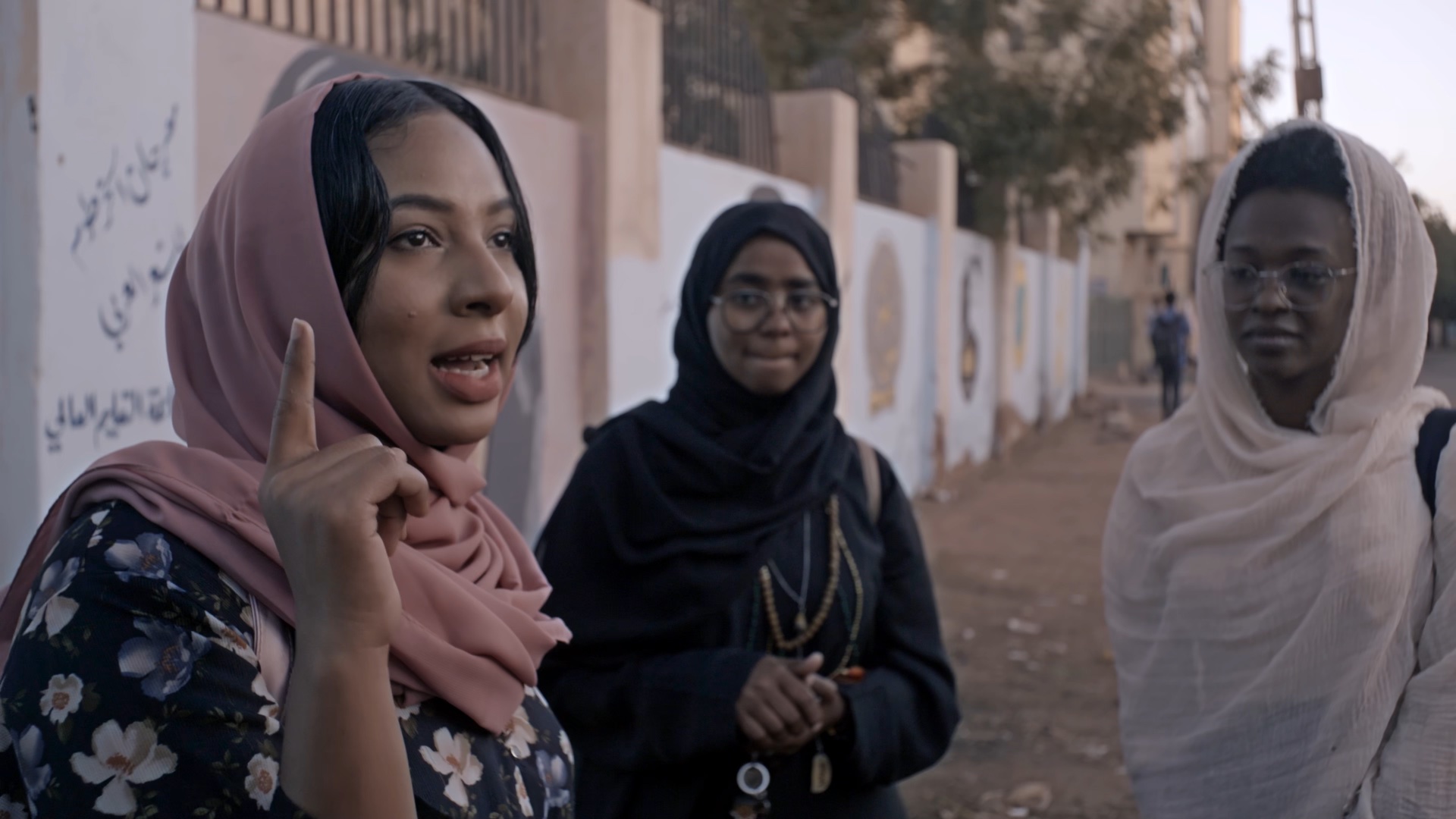
One of the miracles of the film is that it shows the revolution was not only political — it was poetic. In the protests, spoken duels sometimes replaced debates. Youth shouted out the names of their poets like others cite national heroes.
You think of the verses of Azhari Mohammed Ali, of Mahjoub Sharif, or of the female figure Azza, “the other name of Sudan,” who became the symbol of the homeland and of resistance. As Hind Meddeb explains, Sudanese poetry acts like an ancient chorus: it speaks for the people, to the people, from the people.
And it’s no coincidence. Sudan, long deprived of cinema, free radio, and independent media, has cultivated orality as its only symbolic survival. In this country of 117 languages and 56 ethnic groups, words travel faster than bullets.
Women on the front Lines, heirs of the Kandaka queens
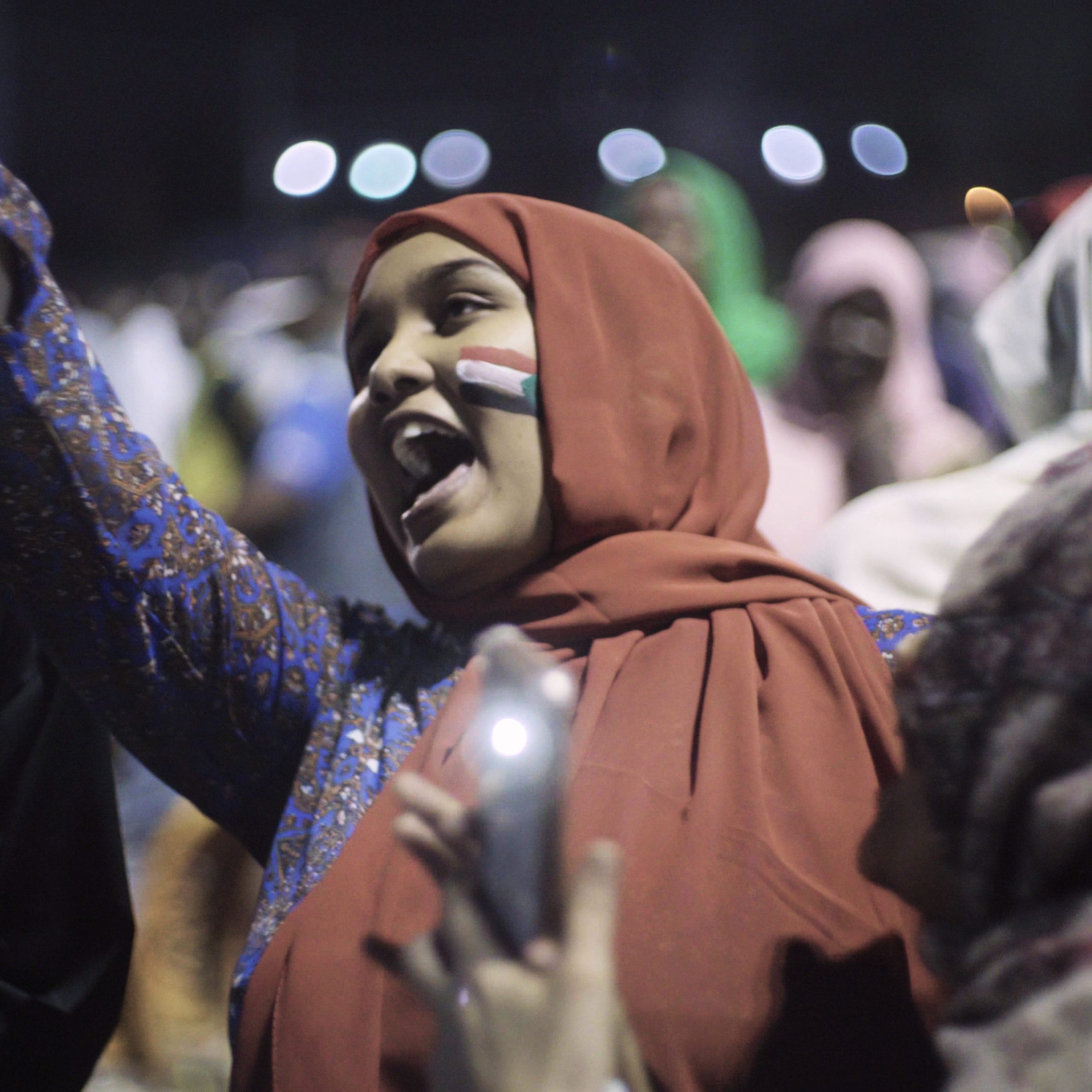
The film gives women a central place — not as a forced feminist statement, but naturally, as they were in the marches, in the kitchens, on stage, in the clinics. They are called Maha, Shajane — jewelers, activists, poets. Some still live in Sudan, others have gone into exile.
In a country where dictatorship imposed the veil, banned pants, and administered public floggings, women were on the front lines from the beginning. They are called Kandaka, in tribute to the Black queens of the ancient Kingdom of Kush who defied the Roman Empire. This isn’t a narrative flourish — it’s a historical fact. And a spiritual legacy.
A faceless dictatorship, a defenseless people
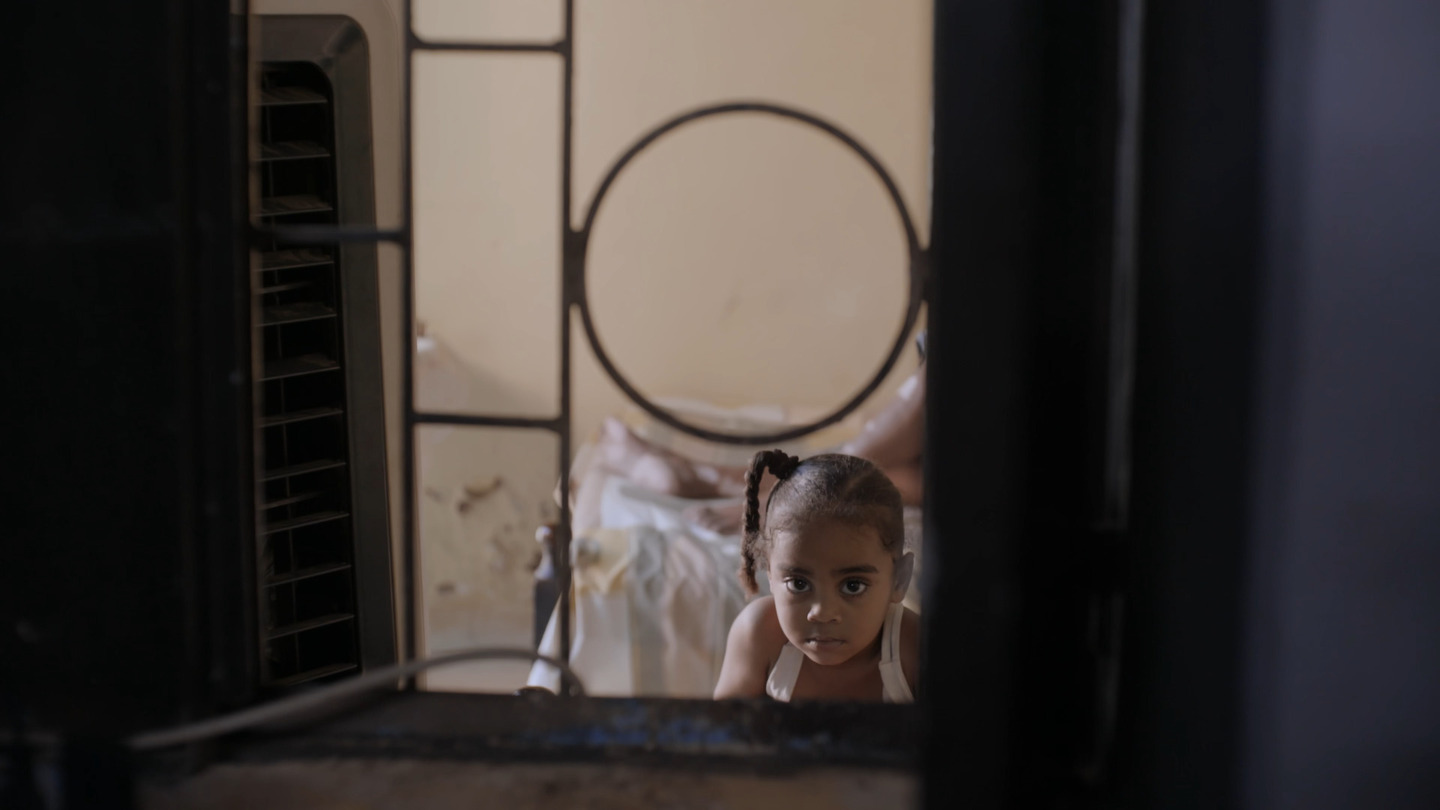
Hind Meddeb also films an absence: the enemy’s. The military stays off-camera, except in chilling footage they post themselves — a mix of sadism and vanity. The June 3, 2019 massacre that dispersed the sit-in in a bloodbath is told through testimonies, shadows, and gazes.
The viewer doesn’t leave unscathed. But they’re not trapped in pain either. Because while the film documents horrors (rape, disappearances, torture), it chooses life. It shows the power of mutual aid, the dignity of daily life, creativity as the last barricade.
A fragmented memory, a Sudan in exile

The narrative is constructed like a letter. A correspondence between the filmmaker and her subjects, punctuated with voice messages, fleeting footage, and meaningful silences. It’s not an explanatory film — it’s a film with. And that “with” changes everything.
From Paris, Hind Meddeb follows the lives of those she filmed. Many are now scattered: Shajane works in a food truck in the Emirates, Maha is seeking refuge in Port Sudan. All carry the weight of a broken dream. But none have given up on memory.
The film becomes a relay. A thread stretched between revolution and its future, between those who witnessed and those who must remember. It speaks to France, to Europe, to Africa: Look at what your media won’t show. Look at what your governments ignore. Look at this people who, despite everything, still stand tall.
An archive-film for a suspended revolution
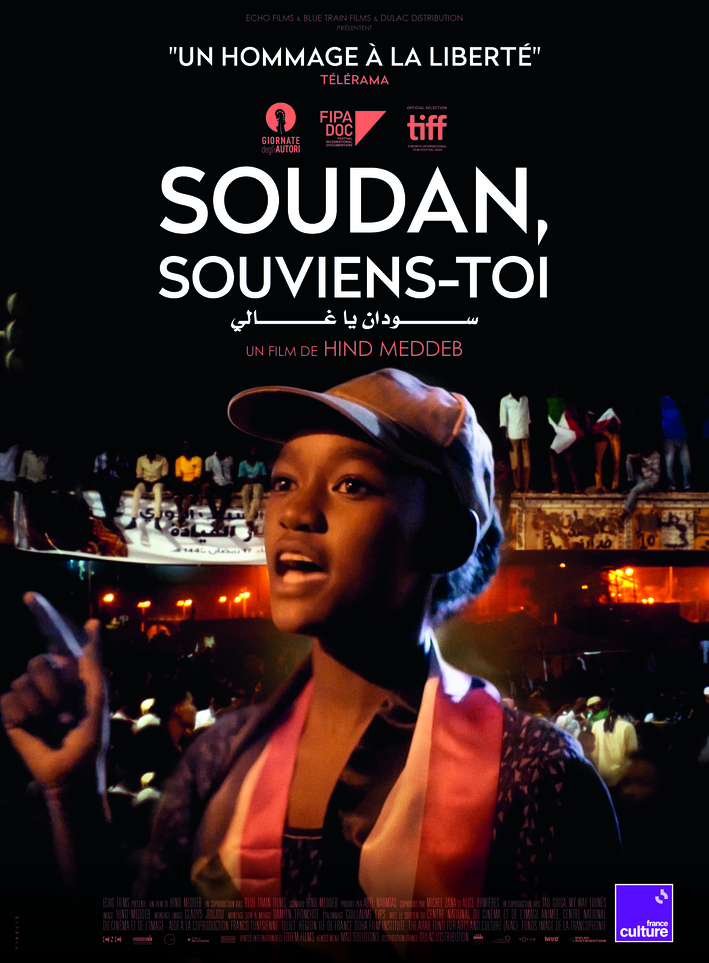
Presented at the Venice Film Festival, TIFF, FIPADOC, and soon in French theaters (release on May 7, 2025, via Dulac Distribution), Sudan, Remember has already won several awards. But its real impact lies elsewhere: in the eyes of young Sudanese in the diaspora, in the debates it provokes, in the images it revives.
Sudan is not a civil war. It’s a war against memory.
And this film, against forgetting, acts like a thistle-poem. It stings. It holds. It endures.
Notes and Historical Markers
- Sudanese Revolution (2018–2019): Sparked by a rise in bread prices, this popular movement led to the fall of President Omar Al-Bashir, in power since 1989. The movement was largely peaceful, led by youth and women.
- June 3, 2019 Massacre: Brutal crackdown on the peaceful sit-in in Khartoum by the Rapid Support Forces (RSF), resulting in at least 127 deaths, numerous rapes, and forced disappearances.
- October 25, 2021 Coup: The military, led by Abdel Fattah al-Burhan, overthrew the transitional civilian government, plunging the country into a new crisis.
- April 2023 Civil War: Armed conflict between the regular army and RSF militias for control of the country, causing thousands of deaths and the displacement of millions.
- Poetry in Sudan: A powerful political and popular tradition. It long substituted for a silenced press and served as a means of resistance. Figures like Mahjoub Sharif and Azhari Mohammed Ali are revered as national consciences.
- Hind Meddeb: Franco-Tunisian filmmaker known for her socially engaged documentaries (Electro Chaabi, Paris Stalingrad). With this film, she delivers a work that is both political and aesthetic, filmed between 2019 and 2023.
